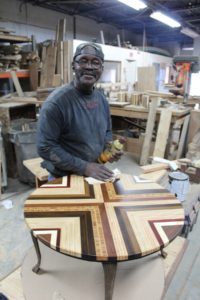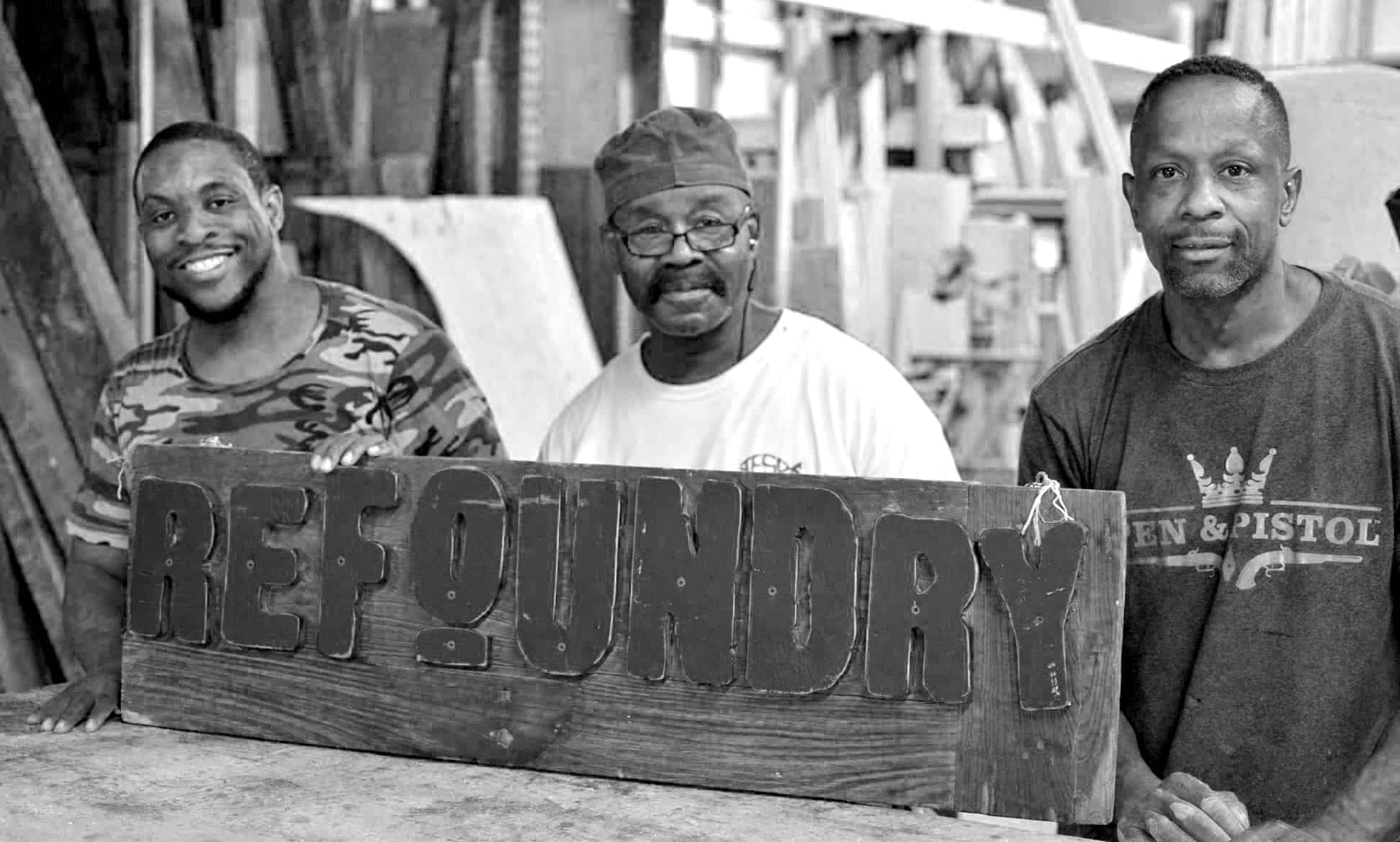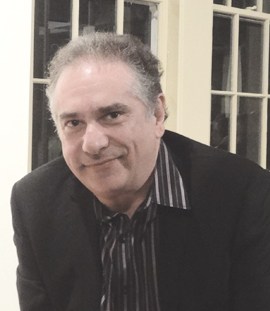Eugene “Gene” Manigo, 66, lifts a long piece of wood that looks like a door and places it nearby a saw in his workshop, Hammer Time Studios. He provides instructions to his apprentice, explaining what length and width he’d like for this piece and how thick the wood should be. The two discuss and confirm numbers before the electric saw comes to life and whirring noises fill the air.
“It was weird how I got into furniture, but I learned while I was in prison,” Manigo explains in the hallway outside his workshop as the machinery’s noise becomes muffled.
After serving 30 years in prison, Manigo has been home for five years. He says he took up different industries during his sentence – one being a chair shop and the other being a 30-millimeter woodworking shop – where he made frames for chairs and built office desks for state buildings.

“While I was in prison I was able to see myself much better without all the distractions in my life,” Manigo says. “And, so when I came home, I ran into the Refoundry program that was opening up. I became one of its founding participants.”
Refoundry, which launched in early 2015, is a Brooklyn-based non-profit that trains formerly incarcerated people to repurpose discarded materials into one-of-a-kind home furnishings, and mentors participants into their own businesses or career-track jobs. Their curriculum includes mental health/addiction referrals, classes in Internet, finance, business, résumé-building and interview skills and more. Participants make various furniture pieces during the 18-month paid fellowship, and then they sell them at flea markets, earning and keeping a portion of the profits. The Refoundry training program will be starting a new cohort of 20 participants in early 2019.
“When people buy home furnishings made by Refoundry Entrepreneurs, our graduates see their value affirmed; at the same time it gives others a new perspective on people who have been in prison, which helps promote inclusion and opportunity,” says Refoundry co-founder and Executive Director Tommy Safian.
Manigo explains that he was taught how to take discarded furniture and refurbish them during his first year with Refoundry. From there he moved on to building wooden furniture like coffee tables, end tables, platform beds and cabinets. Afterward he became a Refoundry Entrepreneur he established his own furniture business, which he called Kambui Custom Craft. Manigo says he is still struggling financially after two years, but he was determined not to fold.
“Refoundry was the key; it opened up the door for me to see my potentials,” he says. “And once I saw my potentials and put them all together, I moved forward.”
Last September he was introduced to the owner of Hammer Time Studios, who needed someone to help him out at his Brooklyn Navy Yard workshop. The studio owner, who wanted to retire, told Manigo that he wanted to sell the machinery from his business. One thing led to another and Manigo became co-owner.
At Hammer Time Studios Manigo makes custom wall units, entertainment centers, bookcases, cabinets and radiator covers. He explains that radiator covers can be designed in a variety of ways, including just a regular cover or one with bookshelves on the sides. He’s working on a custom radiator cover for a NY State Senator. He has another order of 15 radiator covers for one house.
“I love doing it because it challenges me, and I’ve always been a person who likes to be challenged,” Manigo says. “It just fits into my character.”
He finds that all of his projects – whether it’s making a radiator cover or a dining room table – are exciting because he can see the clients’ reactions and the glow on their faces afterward. Manigo adds that he’s not only tough on himself to do the best job possible, but also on those who work in his shop. He hopes to provide them with an opportunity to work and learn the craft and to help them find a second chance.
“When I was in prison I made 45 cents an hour and I told myself, ‘If I can work for the state for 45 cents an hour, why can’t I have my own business and be able to give somebody a job for $18 an hour? To make them feel whole and respected, to take care of their family and of themselves,’” Manigo explains. “I ask for a lot. I’m an individual that cares and wants them to grow.”
For more about Hammer Time Studios, visit hammertimestudios.com or text Manigo at his business number, 347-272-0364. To learn more about Refoundry, visit refoundry.org.
Photo courtesy of Refoundry
Author
-

George Fiala has worked in radio, newspapers and direct marketing his whole life, except for when he was a vendor at Shea Stadium, pizza and cheesesteak maker in Lancaster, PA, and an occasional comic book dealer. He studied English and drinking in college, international relations at the New School, and in his spare time plays drums and fixes pinball machines.
View all posts
George Fiala has worked in radio, newspapers and direct marketing his whole life, except for when he was a vendor at Shea Stadium, pizza and cheesesteak maker in Lancaster, PA, and an occasional comic book dealer. He studied English and drinking in college, international relations at the New School, and in his spare time plays drums and fixes pinball machines.










